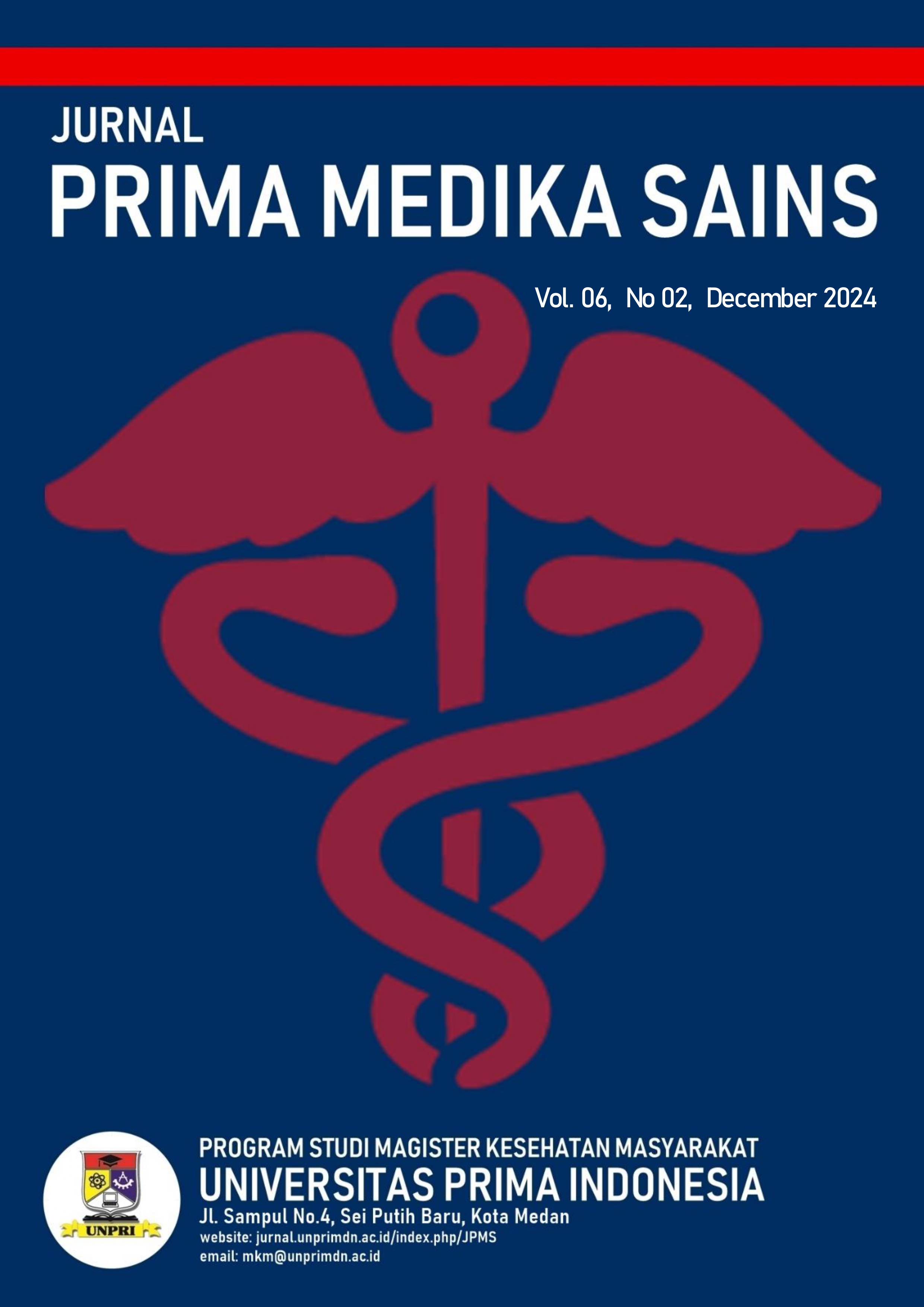Unmet need for family planning among women visiting community health
Main Article Content
Abstract
The unmet need for family planning is a significant reproductive health issue, particularly in developing countries. This study aimed to identify the factors associated with the unmet need for family planning among women visiting puskesmas in Medan City. This study used a cross-sectional design and included 186 participants. Data were collected using questionnaires. Data were analyzed using the chi-squared test and logistic regression. The results showed that age, education, knowledge, and perception of family planning were significantly associated with an unmet need for contraception (p<0.05). The younger the age, the lower the level of education, the lower the knowledge and perception of family planning, and the higher the likelihood of an unmet need for contraception. In contrast, family income and parity were not significantly associated with the unmet need for family planning. Satisfaction with family planning services was also not significantly associated with unmet need for contraception. The results highlight the importance of comprehensive interventions to address the unmet need for family planning. Educational programs targeting younger age groups, especially those with low educational levels, need to be improved. Additionally, efforts to improve knowledge and change community perceptions of family planning are crucial.
Article Details

This work is licensed under a Creative Commons Attribution 4.0 International License.

